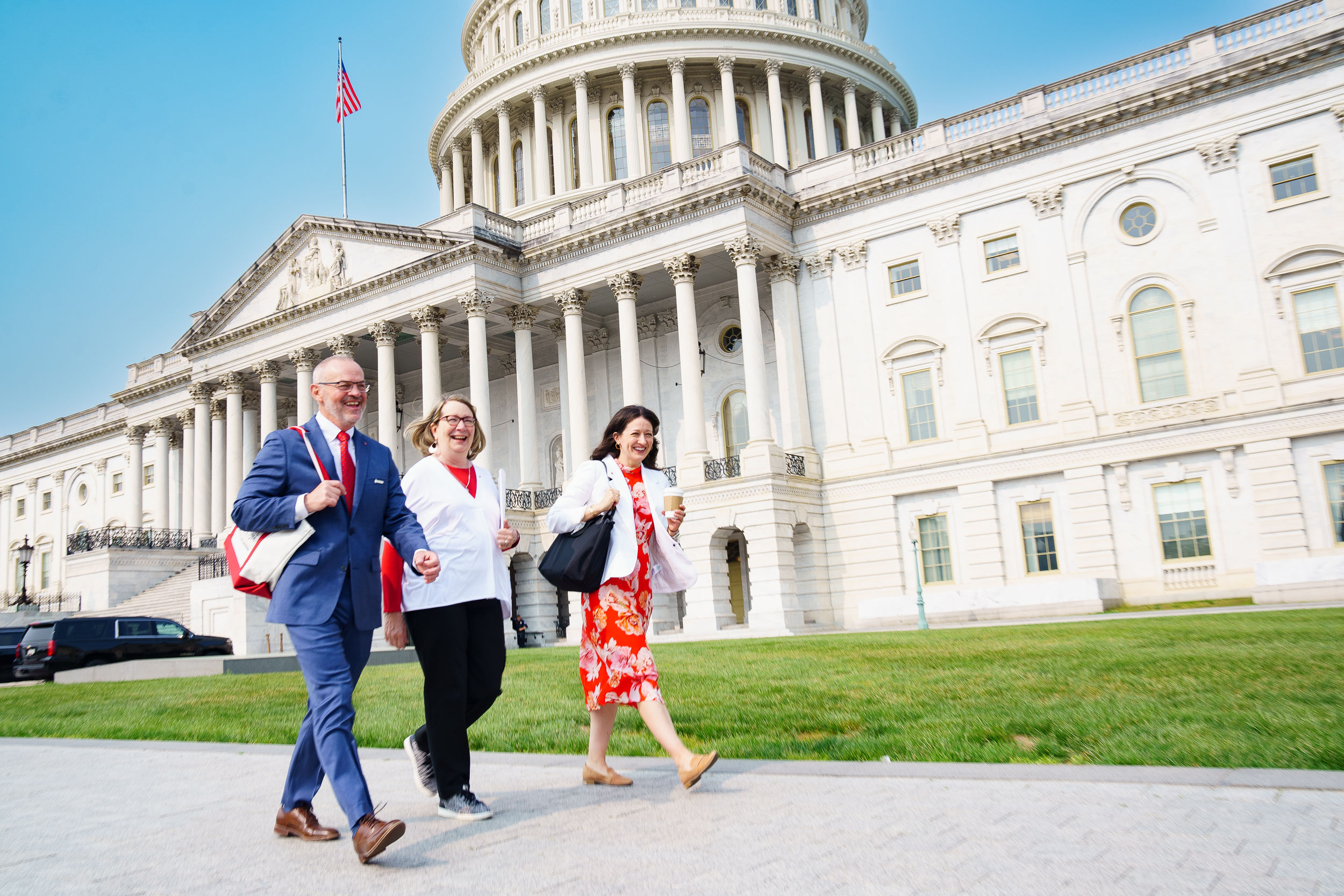
More than 100 volunteer advocates traveled to Washington, D.C. this spring with one goal in mind: urge lawmakers to address rising healthcare costs—and reduce the harm those high costs can have on patients.
Volunteers from 27 states – including patients, survivors, and caregivers – held 121 meetings with members of Congress, urging them to address two crucial issues: rising healthcare costs and medical debt. By sharing their stories with Congressional offices, they shed light on the burden many patients and families face—and on policy solutions that can help.
LLS’s impact
While some advocates were on Capitol Hill, hundreds of others participated virtually, sending 1674 letters and reaching 385 members – that’s 88.5% of Congress!
Advocates discussed legislative proposals that would decrease costs for patients and medical debt – two issues that we feel are closely related. LLS looks forward to continuing to engage with lawmakers on these important policies.
How advocates did it
LLS’s Office of Public Policy staff spent a day training volunteers on ways to have successful meetings with members of Congress. Volunteers learned about the legislation LLS is fighting for, shared their own stories, and had the opportunity to roleplay their meetings.
The next day, advocates shared their stories and their perspective at the U.S. Capitol, meeting with as many as six lawmakers in one day. By sharing their experiences with elected officials and legislative staff, they made a compelling case for reforms that would greatly impact the quality of life for patients, families, and survivors.
Lower Costs, More Transparency Act
Forty-two percent of patients exhaust their entire life savings within two years of a cancer diagnosis. That’s why advocates urged lawmakers to support the Lower Costs, More Transparency Act: to improve healthcare price transparency and make treatments more affordable for patients.
The bill would eliminate outdated billing practices and ensure that patients covered by Medicare pay the same price for the same service, regardless of who owns the facility they get their care. Today, in some cases, patients may pay vastly different rates for some healthcare, such as infusions, depending on whether it’s administered in a physician’s office or a hospital.
The bipartisan bill would reduce high out-of-pocket drug costs for patients. Today, middlemen often charge patients much more for generic anti-cancer drugs than they cost – and pocket the difference for themselves. The Lower Cost, More Transparency Act would help protect patients from practices like these, which drive up drug costs for patients.
The House has already passed the Lower Cost, More Transparency Act, but advocates urged their Senators to support it as well.
Shielding patients from medical debt
Two-thirds of adults say they couldn't afford cancer treatment without going into debt. The debt can cost patients their homes, limit their ability to feed their families, and even prevent them from getting further healthcare. Many patients forgo follow-up appointments or even chemotherapy because they cannot afford more debt.
That’s why we’re advocating for policies that both protect patients who already have medical debt and shield patients from accumulating future medical debt.
Learn more
- Sign up to become an LLS advocate here, and we’ll let you know when we need you to send an important message to your members of Congress about medical debt, the Lower Costs, More Transparency Act, or other issues that impact blood cancer patients.
- Watch an animated video about how medical debt affects patients health, livelihoods, and futures